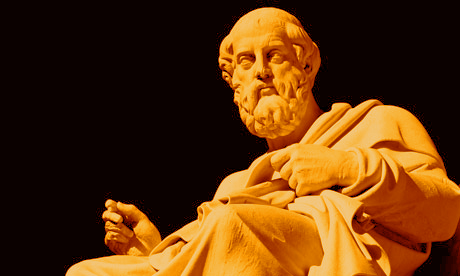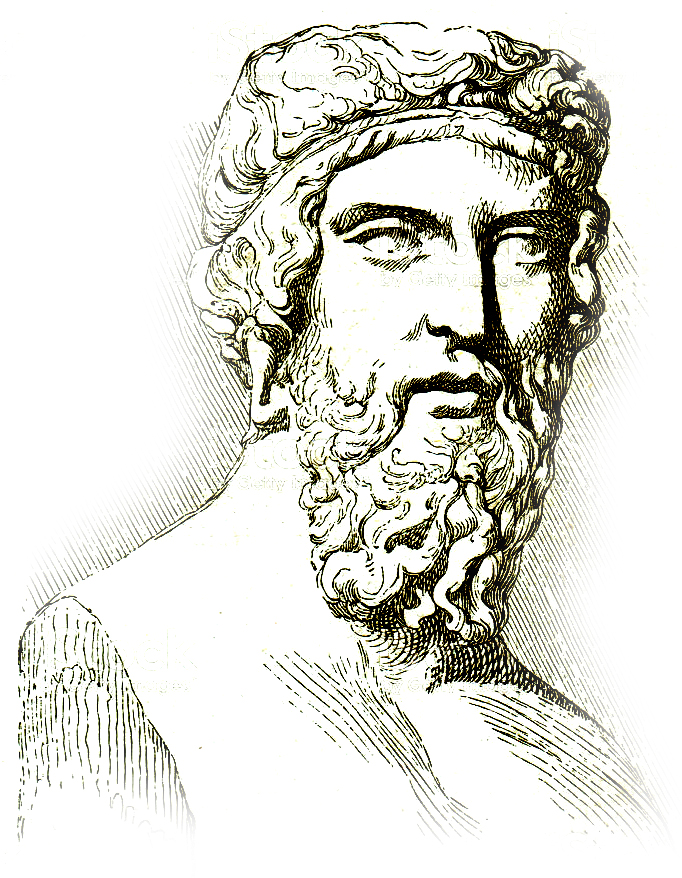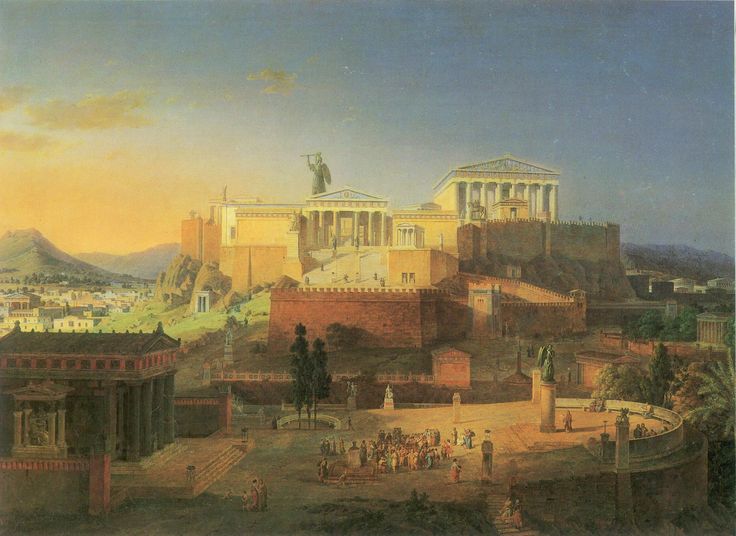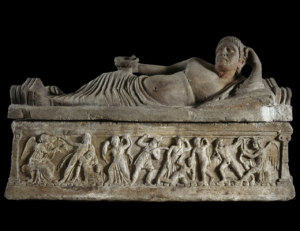Correcting popular misconceptions about Plato (Part Three)

Aglaophamos
In book V of the Republic, Plato famously argues for the inclusion of women in the guardian class1, which has given rise to the belief that he was a ‘proto-feminist’. This, as we shall see, is a gross mischaracterization. That the guardian women should perform the same job and, thus, receive the same education as the male guardians is only the logical outcome of Plato’s theory of the Soul, according to which sex is a biological trait and souls are not inherently male or female. Given that the physical differences between the sexes are not as relevant as the makeup of one’s soul when it comes to performing the duties of a guardian, Plato sees no reason why the women who possess a rational and courageous soul should not share the same upbringing and living conditions as the male guardians and contribute to the defense of the city according to their abilities.
“Can it be denied that there is by nature a great difference between men and women? […] Do you know of anything practiced by mankind in which the masculine sex does not surpass the female on all these points? […] There is no pursuit of the administrators of a State that belongs to a woman because she is a woman or to a man because he is a man, but the natural capacities are distributed alike among both creatures and women naturally share in all pursuits and men in all – yet for all the woman is weaker than the man”2.
Any unbiased reader will recognize that Plato was in no shape or form a believer in ‘gender equality’, but what about his proposition to abolish the nuclear family? There are two main reasons for this policy – which, like the abolition of private property, applies only to the guardian class. The first reason has to do with eugenics: in order to produce the best possible offspring, sexual intercourse between the guardians must be strictly controlled by the philosopher-rulers, who will ensure, by means of a rigged lottery system, that the best guardian men have sex with the best guardian women. The best guardian men will also be allowed to have sex with as many women as they desire, in order to increase the likelihood of producing offspring of a similar nature. Once born, the children will be taken away to a rearing pen and the parents will not be allowed to know who their own children are. This brings us to the second reason, which is unity: not knowing who their children are will free the guardians from the temptation to put family interests before the good of the whole community, preventing nepotism and family feuds. Plato was well aware that his propositions would appear outlandish to even the most sympathetic reader3; however, since the Republic is meant to be a theoretical discussion on the perfect form of government, practicality was not a primary concern for him.

I will now address what is perhaps the most pernicious misconception about Plato, which has to do with his supposed homosexual or paedophilic tendencies4. Naturally, these allegations are never substantiated by any real proof: even the author of a well-known article titled ‘Plato: misogynist, paedophile and feminist’ could not provide any evidence to support her claim, apart from a few spurious poems and a passage from an early dialogue (Charmides 154a-155e) in which Socrates relates his first encounter with one of Plato’s uncles5. In reality, there is not one single passage in Plato’s entire body of work that can be interpreted as praising – or even condoning – sexual relationships between men or between men and boys6, whereas the passages which condemn such behavior are numerous and unequivocal. In the Republic, for instance, Socrates says: “you will lay down the law in the city that we are founding, that the lover may kiss and pass the time with and touch the beloved as a father would a son, for honorable ends […]. But otherwise he must so associate with the objects of his care that there should never be any suspicion of anything further”7.
The condemnation of homosexual acts is even more explicit in the Laws, where the Athenian Stranger (Plato’s mouthpiece in the dialogue) says: “when male unites with female for procreation the pleasure experienced is held to be due to nature, but contrary to nature when male mates with male […]. And we all accuse the Cretans of concocting the story about Ganymede8. Because it was the belief that they derived their laws from Zeus, they added on this story about Zeus in order that they might be following his example in enjoying this pleasure as well”9. Later, he proposes to extend the religious sanctions which already operated against incest to homosexual intercourse10. Why is it then, if Plato regarded homosexual practices as morally reprehensible, that some of his dialogues, such as Charmides, Symposium and Phaedrus, are “filled with homosexual banter”11? The reason is that pederasty was part of the culture of the Athenian aristocracy, to which Plato and his primary audience belonged. One can speculate about Plato’s own homosexual proclivities, but his writings leave no doubt as to what his views were on the matter: homosexual desire was something to be overcome, the first step in the “ladder of love” leading from carnal attraction to attraction to spiritual beauty and, finally, to knowledge of Beauty itself12 – in other words, he only considered homosexual desire acceptable as a gateway to philosophy, while firmly condemning any kind of homosexual activity.
So why is this last misconception so prevalent, both inside and outside of academia? Because it is used to control our conception of the past, to re-align it with our contemporary sexual morality, with the approval of mainstream intellectuals. And this serves to prevent the literature’s intended audience, masculine young men, from relating to classics and philosophy. Thus ensuring that the humanities remain a liberal stronghold and that the true teachings of Plato never penetrate the public consciousness. For there is nothing that the modern elites fear more than the rise of Plato’s ideal State, where power and influence cannot be bought and the good of the People always comes before individual freedom, even for the members of the ruling class.

1 Plato uses the term ‘guardian’ to define both the philosopher-rulers and the warrior class from which they are selected.
2 Plato, Republic V 453b-455e; transl. P. Shorey.
3 Cf. Plato, Republic V 450c: “one might doubt whether what is proposed is possible and, even conceding the possibility, one might still be skeptical whether it is best” (transl. P. Shorey).
4 The terms are often used interchangeably, because in ancient Greece same-sex relationships normally involved an unmarried man between the ages of twenty and thirty and a younger man in his teenage years; however, since in modern parlance the term ‘paedophilia’ denotes sexual attraction to prepubescent children, its use in reference to ancient Greece is gravely misleading and should thus be avoided.
5 D. Wender, ‘Plato: misogynist, paedophile and feminist’, Arethusa VI (1973) 75-90: 78-80.
6 By that I mean a passage in which Plato expresses his own views through the character of Socrates or through one of his other mouthpieces in the later dialogues.
7 Plato, Republic III 403b; transl. P. Shorey.
8 According to Homer (Iliad XX 233-235), Ganymedes “was the loveliest born of the race of mortals, and therefore / the gods caught him away to themselves, to be Zeus’ wine-pourer, / for the sake of his beauty, so he might be among the immortals” (transl. R.A. Lattimore).
9 Plato, Laws I 636c-d; transl. R.G. Bury.
10 Cf. Plato, Laws VIII 838a-839b.
11 D. Wender, op. cit., 78.
12 Cf. Plato, Symposium 210a-211d, Phaedrus 249d-257b.











